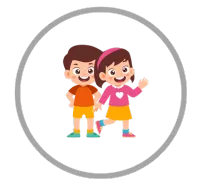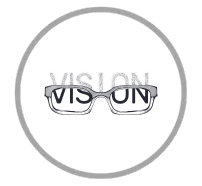Vision Issues
Early Signs of Binocular Vision Dysfunction
FSDAVCFEBFEVSDDVFSD
FSDAVCFEBFEVSDDVFSD
FSDAVCFEBFEVSDDVFSD
Recognizing Early BVD Symptoms
Binocular Vision Dysfunction (BVD) occurs when the eyes don’t work together properly and is common in children but often goes undiagnosed. Early signs include frequent eye turns, headaches after reading, blurry or double vision, and difficulty concentrating during close tasks. Parents might notice their child rubbing their eyes or avoiding activities that require focus. These symptoms can affect a child’s learning and cause discomfort.
Detecting BVD early is crucial to prevent ongoing problems like eye strain and headaches. Pediatric eye exams that assess binocular function can identify BVD, allowing timely treatment such as NeuroLens testing and prism lenses to improve eye alignment and visual comfort.
Binocular Vision Dysfunction (BVD) occurs when the eyes don’t work together properly and is common in children but often goes undiagnosed. Early signs include frequent eye turns, headaches after reading, blurry or double vision, and difficulty concentrating during close tasks. Parents might notice their child rubbing their eyes or avoiding activities that require focus. These symptoms can affect a child’s learning and cause discomfort.
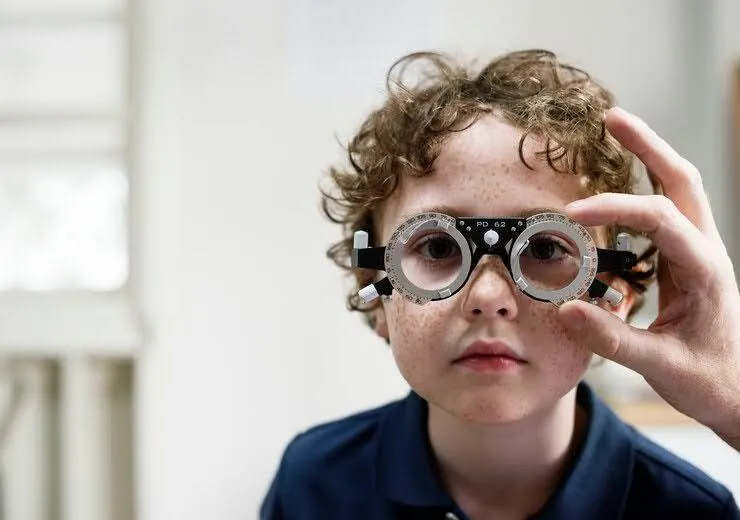
Detecting BVD early is crucial to prevent ongoing problems like eye strain and headaches. Pediatric eye exams that assess binocular function can identify BVD, allowing timely treatment such as NeuroLens testing and prism lenses to improve eye alignment and visual comfort.

How NeuroLens Testing Helps Diagnosis
NeuroLens testing is a specialized eye exam that measures eye alignment and binocular function with great accuracy. This advanced technology detects subtle misalignments that traditional exams may miss, helping to uncover the root causes of headaches, eye strain, and visual discomfort in children. By providing a detailed understanding of how the eyes work together, NeuroLens testing allows optometrists to pinpoint issues that impact a child’s ability to focus and read comfortably.
At Kleinwood Vision, the results from NeuroLens testing are used to design custom prism lenses tailored to each child’s unique needs. These lenses help reduce strain by improving eye coordination and balance, leading to clearer vision and less discomfort. Many families report noticeable improvements in headaches, reading ability, and overall focus following NeuroLens treatment. This personalized care makes a significant difference in children’s daily activities and learning experiences.
Regular follow-up visits are important to monitor progress and adjust treatment as a child’s vision changes with growth. NeuroLens testing is an important complement to routine pediatric eye exams, offering a comprehensive approach to eye health. This innovative testing supports early detection and effective management of binocular vision issues, helping children maintain comfort and success in school and beyond.
Frequent childhood signs of BVD
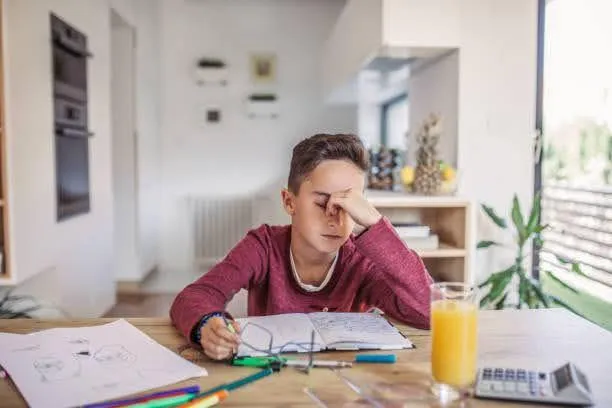
Parents should watch for signs such as frequent squinting, tilting the head, or avoiding reading tasks. Other common indicators include dizziness, headaches after screen time, and difficulty maintaining focus. Because these symptoms can be mistaken for behavioral issues or learning disabilities, it is important to seek a professional eye evaluation. Identifying the root cause ensures children receive the proper care they need.
Recognizing these symptoms early allows for prompt intervention, which can significantly improve a child’s quality of life and academic performance.

Early treatment helps reduce eye strain and headaches, making reading and schoolwork more comfortable. Addressing binocular vision dysfunction or related issues in childhood can prevent long-term vision problems and support better visual development as the child grows. Timely care is key to ensuring children maintain healthy vision and avoid unnecessary struggles in learning and daily activities.
Children with Binocular Vision Dysfunction (BVD) frequently experience eye fatigue and headaches, particularly after activities that require close focus, such as reading or doing homework. These symptoms can lead to frustration and difficulties in school, affecting their overall performance and confidence. When left unaddressed, the ongoing discomfort may cause children to avoid tasks that require sustained visual attention, further impacting their learning experience. Understanding the connection between these symptoms and BVD is crucial for parents to recognize the need for professional evaluation and care.
At Kleinwood Vision, early detection through comprehensive eye exams and NeuroLens assessment allows for precise diagnosis of BVD. Using this information, optometrists create tailored treatment plans to reduce eye strain and headaches, helping children achieve clearer and more comfortable vision. This proactive approach supports healthy visual development and improves daily functioning, enabling children to focus better in school and enjoy activities without visual discomfort. Early intervention is key to long-term success and well-being.
Advantages of NeuroLens treatment benefits
NeuroLens prism lenses work by gently realigning the eyes, which helps reduce strain and improve overall comfort. This treatment targets common symptoms of Binocular Vision Dysfunction (BVD), such as headaches, dizziness, and reading difficulties. Children who use NeuroLens often report better focus and less eye fatigue during tasks that require sustained visual attention, like reading or homework. By addressing the root cause of these symptoms, NeuroLens offers a practical solution that improves daily comfort.
In addition to relieving visual discomfort, NeuroLens can also help improve posture. Many children with BVD tilt or turn their heads to see more clearly, which can cause neck and shoulder strain over time. By reducing the need for these compensatory movements, NeuroLens supports better body alignment. This holistic approach not only enhances visual function but also helps children feel more comfortable and confident in their everyday activities.
Observing and tracking vision-related behaviors carefully
Parents play a crucial role in observing their child’s vision-related behaviors. Noticing signs like frequent eye rubbing, headaches, or difficulty with reading tasks should prompt a professional evaluation. Keeping track of symptoms and what triggers them provides valuable information to eye care specialists, helping shape effective treatment plans.
Discussing these concerns with an eye care professional can lead to early diagnosis and better management of Binocular Vision Dysfunction (BVD). Regular eye exam ensures that the child’s vision remains stable and comfortable as they grow and develop, preventing further complications.
Parents play a crucial role in observing their child’s vision-related behaviors. Noticing signs like frequent eye rubbing, headaches, or difficulty with reading tasks should prompt a professional evaluation. Keeping track of symptoms and what triggers them provides valuable information to eye care specialists, helping shape effective treatment plans.
Discussing these concerns with an eye care professional can lead to early diagnosis and better management of Binocular Vision Dysfunction (BVD). Regular eye exam
ensures that the child’s vision remains stable and comfortable as they grow and develop, preventing further complications.
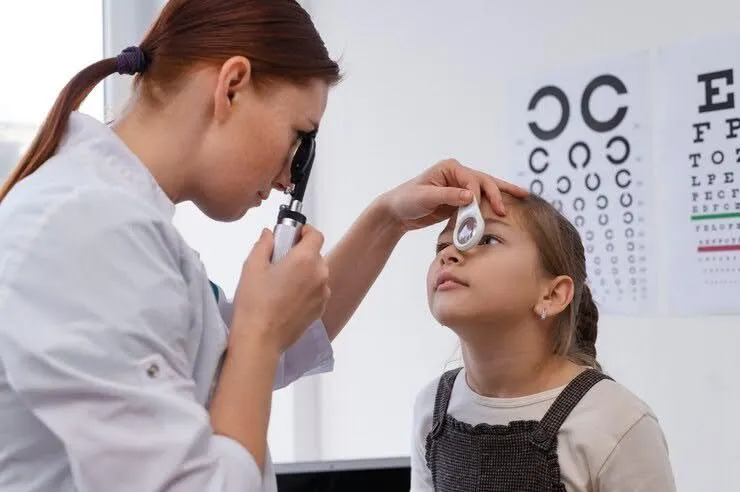

Kleinwood Vision encourages parents to bring their children for routine eye exams, especially if signs of BVD appear. Early detection and treatment help support healthy vision development, improving a child’s comfort and success in daily activities.
Pediatric Eye Exams and BVD Services
At Kleinwood Vision, comprehensive pediatric eye exams include detailed screening for binocular vision dysfunction (BVD), a condition that affects how the eyes work together. Using state-of-the-art NeuroLens testing, our skilled team can detect subtle misalignments that often go unnoticed during regular eye exams. This technology helps us assess not just eyesight but the crucial coordination between both eyes, which is essential for comfortable and clear vision in children.
When a child is diagnosed with BVD, we create customized prism lenses designed to relieve symptoms such as headaches, eye strain, and difficulties with reading. Each treatment plan is carefully tailored to the individual needs of the child and regularly adjusted to accommodate changes in their vision as they grow. This personalized approach aims to improve eye coordination, reduce discomfort, and support healthy visual development throughout childhood.
Parents play an essential role in the care process. At Kleinwood Vision, we provide guidance on monitoring symptoms and strategies to support their child’s vision health at home. Early intervention, made possible through specialized testing and consistent care, helps prevent BVD from negatively impacting learning and everyday activities. This proactive approach ensures that children experience less visual discomfort and can focus better in school and daily life.
To support healthy vision development, we recommend early and frequent pediatric eye exams. Detecting binocular vision problems promptly allows for timely treatment, helping children maintain stable, comfortable vision. Kleinwood Vision is dedicated to helping families address BVD effectively, ensuring better visual outcomes and a higher quality of life for children.
Tips for Parents to Support Vision Health
Taking regular breaks during screen time and close work is vital to reducing eye strain in children. Parents should be alert to signs like squinting, head tilting, or frequent eye rubbing, which may indicate vision difficulties that require professional evaluation.
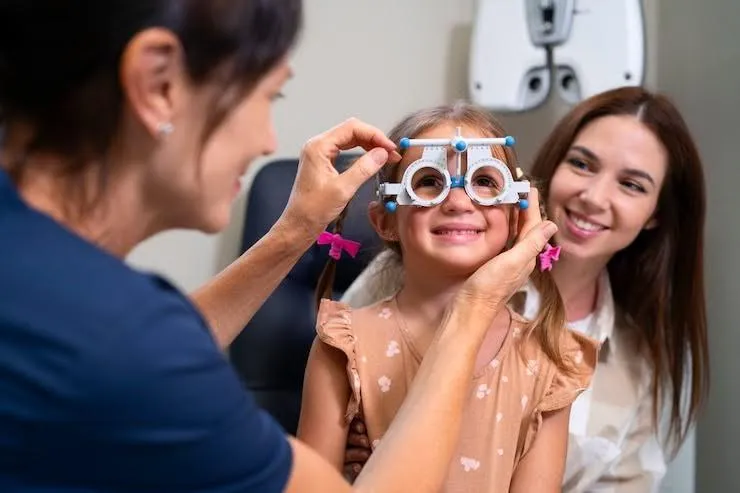
Taking regular breaks during screen time and close work is vital to reducing eye strain in children. Parents should be alert to signs like squinting, head tilting, or frequent eye rubbing, which may indicate vision difficulties that require professional evaluation.
Consistent eye exam appointments play an important role in detecting issues early before they impact a child’s learning or comfort. Regular exams allow eye care professionals to identify conditions such as binocular vision dysfunction and provide timely treatment to support healthy vision development.
Consistent eye exam appointments play an important role in detecting issues early before they impact a child’s learning or comfort. Regular exams allow eye care professionals to identify conditions such as binocular vision dysfunction and provide timely treatment to support healthy vision development.
Creating a well-lit environment for reading and homework further helps minimize visual stress and promotes better focus. Kleinwood Vision’s experienced team is dedicated to offering parents practical advice and resources to effectively support their children’s eye health. By fostering good habits and seeking professional care when needed, parents can help ensure their children maintain clear, comfortable vision for school and daily activities.
Scheduling a NeuroLens Eye Exam
Scheduling a NeuroLens assessment at Kleinwood Vision is an easy and essential step for early detection of binocular vision dysfunction (BVD). This quick, non-invasive test uncovers subtle eye misalignments that may be missed during regular eye exams. By identifying these issues early, eye care professionals can develop personalized treatment plans that reduce symptoms like headaches, eye strain, and difficulty focusing.
If your child shows signs of BVD—such as frequent headaches, eye turns, or trouble concentrating—booking a comprehensive pediatric eye exam with NeuroLens testing is important. Early diagnosis allows for effective management, helping improve your child’s visual comfort and overall quality of life. Timely treatment can prevent vision problems from worsening and supports better performance in school and daily activities. Contact Kleinwood Vision today to schedule an exam and ensure your child’s eye health is properly cared for..

Contact Info
Hours of Operation
Mon - Fri | 9:00 AM - 5:00 PM
Sat - Sun | Closed
Holiday Hours: We are closed for the following holidays: New Years Day, Memorial Day, Independence Day, Labor Day, Thanksgiving Day, Christmas Day
© 2026 Kleinwood Vision. All rights Reserved.
